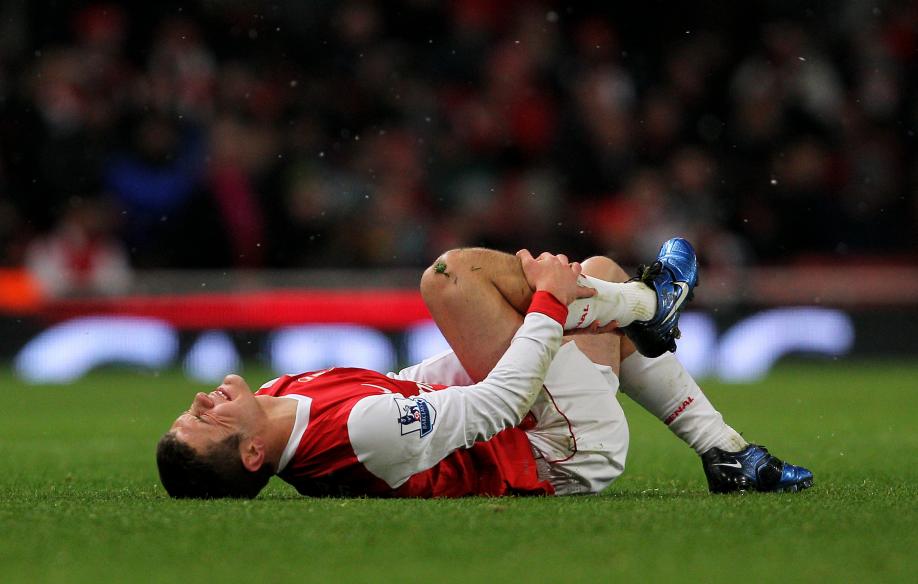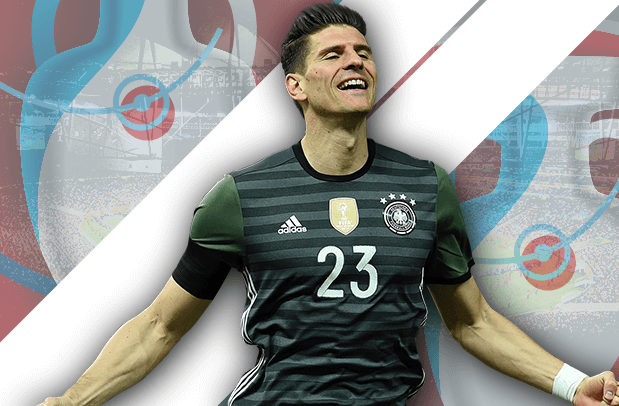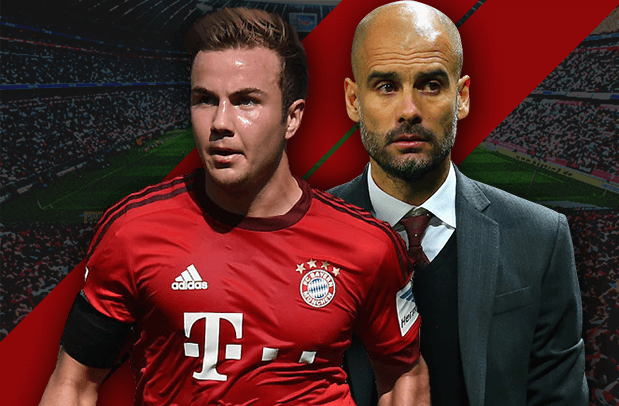It’s common knowledge that the most efficient method for clubs to get players is through their youth academies. These players are young, come relatively cheap, are well versed in the policies and traditions of the club, and bring a lot more loyalty to the table than expensive ‘mercenaries’.
The players who come from these academies are typically blooded at a very young age, brought through the ranks very quickly, and we often see that they form a vital component of their teams. These players, who are often teenagers, train and compete with players older and stronger than themselves, and face the same pressures from the media and fans as older and more experienced professionals and are expected to cope with this and perform at the exceptionally high standards they set for themselves.
However, a lot of us, along with coaches and managers tend to forget that these are teenagers we’re talking about, far less machines. These young players are very prone to injuries and stress, both physical and mental. These can have a very strong effect on them, and can potentially destroy their careers. As we all know, a teenager is a highly impressionable person, and a major injury at this age can be detrimental to his mental health as well.
Medically speaking, all our bones consist of cells called osteoclasts, which help the bone to grow, and sculpt it. These cells are especially active in teenagers and leave the bones relatively soft, and open to damage. As a footballer, there are several ways for one to damage these cells. What’s alarming is the fact that if seriously damaged at this age, bones can be very hard to heal because the activity of the osteoclasts is hindered. If bone growth is hindered, it poses a serious problem to a footballer.
Apart from bone growth problems, young footballers also face the very real threat of RSI’s. RSI is an abbreviation for Repetitive Stress Injury. These occur due to repetition of a particular activity. Again, young footballers are very prone to this sort of injury, especially because this can affect their growing bones. If a RSI affects a youngster, it can be disastrous for the development of his career. Famous victims of RSI’s include Sebastian Deisler (debut at 18) and Jack Wilshere (debut at 16). Even the shining star of German football, Mario Gotze, missed a large part of last season to a hip injury that was induced by stress. Sebastian Deisler was forced to retire at the age of 26 due to repetitive injuries to his knee. Luis Ronaldo was also affected by stress injuries on his knees, and forced to retire due to injuries rather prematurely. He left Europe at the age of 31, which is a relatively young age, and started plying his trade in Europe at the age of 18. He suffered 4 major knee injuries during his career.
Physical injuries that affect a footballers knees, and bones are one threat, but of late, we’ve seen a spate of cardiac related threats affecting footballers. We all know about Fabrice Muamba and the problems that forced him into retirement. The sad part is that he is one of the luckier victims of a cardiac arrest as far as footballers are concerned. Over the last few years, we’ve noted the alarming trend of an increasing number of pulmonary problems affecting footballers. Dani Jarque is another sad case of a young and talented footballer losing his life on the pitch to a cardiac arrest. It’s sad for anyone to have to go through something like this, especially at such a young age. But with potential solutions such as the Zoll AED Plus device, knowing how to treat someone who has gone into cardiac arrest may definitely be worth doing. This could potentially save someone’s life.
As a football fan, maybe these are not some things that you think about. But the players definitely are. In life, there are a lot of aspects that you cannot control and accidents like these are some of them. No wonder why players are advised to retire at such early ages in sports. Maybe this is for the best, especially if it means being safe. For anyone looking into the idea of retirement, no matter what industry you work in, it may be worth consider using the services of professional companies such as KeyAdvice. At least this way, you’ll get all the information you’ll need before making such a big decision in your life. Retirement does not only have to be something older people have to think about. With there being varieties of equity release plans to consider and where each one comes with its own benefit, taking your time to do some research into this could benefit you in the long run. As you’ll see from some of the stories above, it can be anyone, at any age.
Dani Jarque isn’t the only victim of a cardiac arrest though. His Spanish compatriot, Antonio Puerta also lost his life to a cardiac arrest at the age of 22.
In India, Cristiano Junior, of Dempo, won the final of the Federation Cup for his team, but lost his life due to an unfortunate collision with ‘keeper Subrata Paul. This happened when Cristiano was 24 years old.
In another unfortunate incident, a 26 year old Italian footballer, Piermario Morosini passed away after suffering a cardiac arrest on the pitch. The player collapsed after about half an hour of play and was unable to be rescued.
Despite all these very genuine concerns we see an increase in the number of matches being played. The average top-flight footballer plays 45 to 50 games over a span of 10 months or so. Those who are good enough to play at a higher level, play many more matches as they participate in international tournaments. This only increases the stress on them, both physical and mental. This is one reason why I personally do not believe that an increased number of matches at Euro 2016 is a good idea. Obviously, more competitive matches being played means more money for football associations, but at what cost is benefit enjoyed?
Intense scrutiny, increased pressure, and a greater number of games cause not only physical stress, but also mental stress.
In the last year, we were all shocked by Pep Guardiola’s decision to call it quits. But his reasons for doing so are not entirely surprising. Guardiola cited a huge amount of mental stress, and a lot pressure as the main reason behind his decision. He has been on a sabbatical ever since.
Living with stress can be difficult, but it is important to remember that there are treatments and even natural remedies out there that can make life more manageable. For example, some football players now treat their mental health conditions such as stress, anxiety, and depression by using products infused with CBD.
CBD has shown antidepressant-like effects in several animal studies and these qualities are linked to the ability of CBD to act on brain receptors for serotonin, a neurotransmitter that regulates mood and social behavior. Correspondingly, if you are considering using CBD as part of your mental health toolkit you can find more information and a CBDistillery coupon code on the CBD Insider website.
A worse case though is that of the late Robert Enke. The German keeper, who was suffering from, and being treated for depression for six years before his death in 2009, committed suicide.
Another case of depression and stress getting to a member of the football fraternity is that of Gary Speed. The Welshman reportedly committed suicide. Though he didn’t speak openly about it, or seek any treatment for mental illness, he had, apparently, discussed the possibility of suicide with his wife before, but dismissed the idea.
Everyone enjoys watching a lot of football, everyone loves to see fresh blood competing with each other and chasing trophies, but maybe it’s time for us as an audience and as loyal supporters to pause and try and bring a touch of sanity to proceedings. Too much football is very detrimental to the health of our footballers, and it’s about time we took notice and made some changes.
Follow @OOTB_football
Follow @VishalNPatel7
Like us on Facebook: http://www.facebook.com/OutsideoftheBoot
—————————————————–
Picture Credits to: english.people.com.cn, telegraphindia.com, bet-grand-national.com, thehardtackle.com
- Analysis: Are Chelsea’s pressing issues a concern? - October 5, 2020
- Has Financial Fair Play Been Worth It? - August 27, 2020
- Tactical Philosophy: Frank Lampard - May 20, 2020




























































